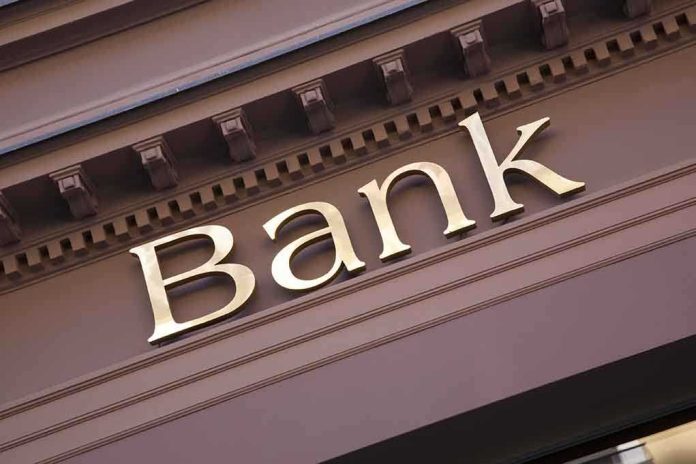
UN Watch’s complaint has the World Bank scrambling over a senior economist’s alleged hate speech, raising hard questions about neutrality, antisemitism, and accountability inside elite global institutions.
Story Snapshot
- UN Watch urged the World Bank to dismiss senior economist Massimiliano Cali over social media posts it characterizes as antisemitic and pro-terror.
- The Bank says it has zero tolerance for antisemitism, has required deletions, and is reviewing content under its Code of Ethics.
- Some posts were removed after disciplinary action; the Bank indicated staff found to engage in hate speech are no longer employed.
- Allegations include reputational risk, neutrality breaches, and potential U.S. entry implications tied to policy shifts.
UN Watch’s Complaint Targets a World Bank Insider
UN Watch filed a formal complaint on August 12, 2025, pressing World Bank President Ajay Banga to terminate senior economist Massimiliano Cali for years of posts it portrays as antisemitic, pro-terror, and hostile to the United States and Israel. The NGO published its dossier and letter, arguing that a Bank officer publicly amplifying incendiary rhetoric jeopardizes neutrality and undermines trust in an institution funded by American taxpayers and headquartered in Washington. The complaint fits UN Watch’s long-running campaign policing bias and incitement among international officials.
The Bank confirmed to media that it enforces a zero-tolerance policy for racism and discrimination, including antisemitism, and that it requires removal of noncompliant social media posts by staff. A spokesperson said disciplinary action has already led to deletion of posts that “crossed the line,” and that staff deemed to have engaged in hate speech are no longer with the institution and barred from future employment. The Bank added it is reviewing content to ensure continued compliance and will take appropriate action.
Allegations, Evidence, and What’s Confirmed
UN Watch’s materials cite Facebook posts it says justify violence, label Israel “the most terrorist state on earth,” and attack the U.S., contending this breaches neutrality obligations and represents reputational risk for the Bank. Fox Business reporting notes Cali’s reduced social media footprint, the removal of some content after Bank action, and difficulty locating certain accounts, while a Facebook page with personal and pro-Palestinian content remains. The Bank did not publicly name individuals in its comments, consistent with HR and legal constraints.
Several claims remain allegations pending official corroboration. UN Watch ties the case to potential U.S. entry restrictions announced this summer and highlights Cali’s connection to UN Special Rapporteur Francesca Albanese, a polarizing figure. Those specific U.S. entry assertions require confirmation from government sources. What is verified is UN Watch’s public call for termination, the Bank’s ethics stance, the ongoing review, and that posts were removed after disciplinary measures. Final employment decisions have not been announced publicly.
Why This Matters for U.S. Taxpayers and Institutional Neutrality
American taxpayers expect neutrality and professionalism from international bodies that receive U.S. support. When a senior economist’s public posts appear to promote or excuse extremist narratives, it erodes confidence that analysis and lending decisions remain impartial. The Bank’s zero-tolerance policy aligns with safeguarding stakeholders from discrimination, including antisemitism, and protecting operational credibility. Robust enforcement also sets precedent across multilateral organizations grappling with polarized online speech by staff.
The episode underscores a broader tension: employee free expression versus institutional neutrality. Multilateral staff hold influential roles shaping projects, data, and engagement in sensitive regions. Clear, consistently enforced rules on personal social media are critical to prevent real or perceived bias. The Bank’s indication that staff found to have engaged in hate speech are no longer employed suggests prior enforcement, yet transparency about standards and process will determine whether stakeholders see this as meaningful accountability rather than reactive PR.
Potential Outcomes and Limits of Current Information
Short term, the Bank faces reputational scrutiny, an internal workload to review posts, and pressure from media and watchdogs. Cali faces possible suspension or termination depending on the review’s findings. Sector-wide, other institutions may tighten social media policies and training as a risk management step. Long term, consistent application of anti-hate policies—without political favoritism—can reinforce public trust. Available reporting does not confirm U.S. entry restrictions for Cali or a final personnel decision; those remain open questions.
For readers concerned about antisemitism, institutional bias, and the misuse of powerful platforms, the key metric is follow-through. The Bank’s stated zero tolerance and prior removals demonstrate tools exist. The next test is whether those tools are applied firmly, fairly, and transparently—protecting Jewish communities from hate, upholding American values of equal dignity, and ensuring that the world’s premier development lender remains focused on facts, not ideological crusades, when taxpayer credibility and security are at stake.
Sources:
UN watchdog demands World Bank fire senior economist over social media posts
Sharada Srinivasan | World Bank Blogs
Global Economic Prospects – June 2025














